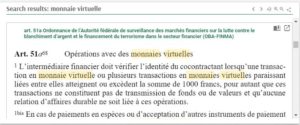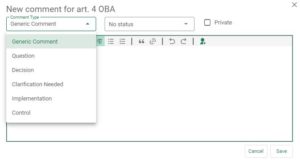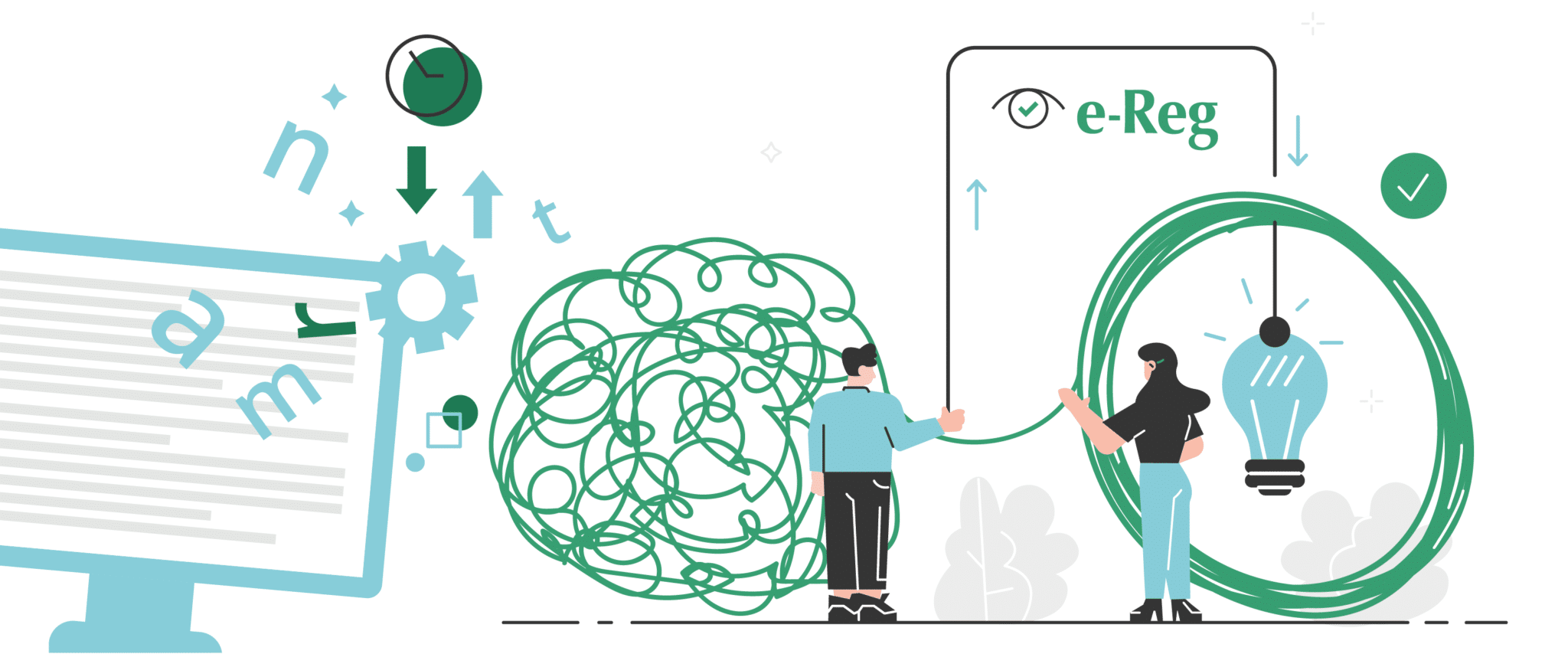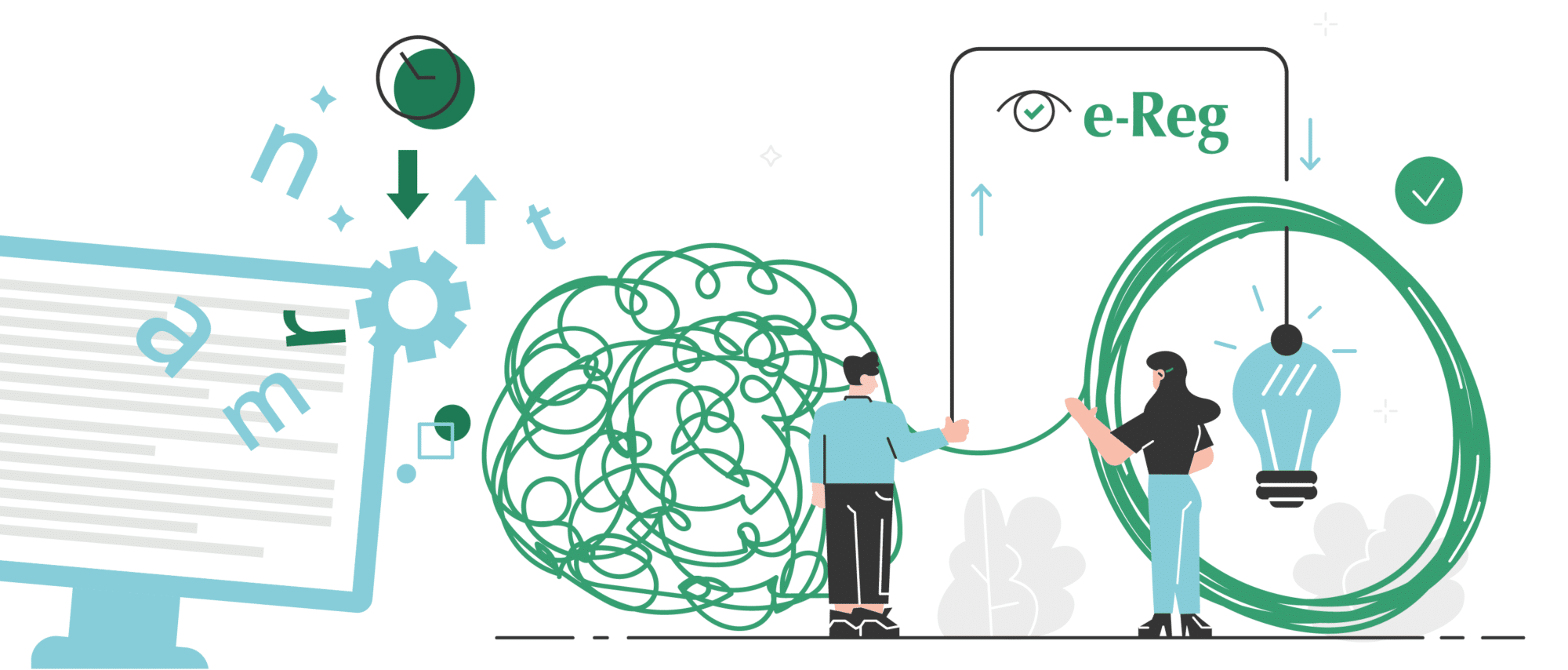The succession of the financial crises and associated reforms, have made compliance-related jobs in Swiss banks increasingly complex. Fintech-type solutions specialized in the regulatory sector have appeared over the last ten years. These are called RegTechs.
Do you know the definition of RegTech? Do you know what services RegTech companies offer? What is the technology used? In what areas do these companies operate? What benefits do these tools offer? This article answers all of these questions and presents a RegTech solution, e-Reg.
1 – RegTech: definition
There are many types of RegTech with different objectives around regulatory texts and data.
1.1 – What does the word RegTech mean?
RegTech stands for Regulatory Technology. RegTech companies provide services to banking organizations and their environments to help them achieve or maintain compliance with the act and regulations. By definition, RegTechs use innovative technologies such as automation, cloud, artificial intelligence (AI), big data. It is important to note, however, that the definition of RegTech is evolving over time.
1.1.1 – RegTech: FSB definition
FSB proposes the following definition “Any range of applications of FinTech for regulatory and compliance requirements and reporting by regulated institutions.”
1.1.2 – RegTech: definition according to Wikipedia
Wikipedia writes in April 2023 referring to Deloitte’s blog, “RegTech is the use of information technology to improve regulatory and compliance processes. RegTech is most usefully applied to highly regulated industries and activities such as financial services, gaming, healthcare, pharmaceuticals, energy and aviation.”
Wikipedia also adds that RegTech’s focus includes regulatory oversight, reporting and compliance and aims to:
- improve transparency as well as consistency ;
- standardize regulatory processes;
- remove regulatory ambiguity;
- deliver higher quality results at lower cost.
1.2 – What is a regulatory activity?
For banks and financial institutions, it is a question of fighting against money laundering, protecting data, improving knowledge of their customers, carrying out regulatory reporting and complying with many other applicable regulations. These financial institutions are thus confronted with the complexity of information sources, the evolution of rules as well as the magnitude of the data to be managed. They feel the need to simplify financial regulation, an objective that RegTechs are helping to achieve.
1.3 – What technologies does the RegTech Fintech use?
As tech companies, RegTechs use a variety of innovative techniques. AI and machine learning are used to analyze data, be it photos, texts or financial transactions. This is the case, for example, in the context of the fight against market abuse or for risky transactions. It is also a way to reduce notifications or alerts and improve their relevance. With Big Data, RegTech tools process a very large amount of data. For example, this technology is used to detect fraud or evaluate credit.
In biometrics, these solutions help identify customers and sign electronically. Banks can thus secure their transactions. Some RegTechs offer automated workflows. This saves their customers development costs, thanks to ready-to-use solutions.
2 – What are the areas explored by RegTech?
KPMG’s 2019 study called “Panorama of European RegTech“ details the breakdown of services offered by 242 companies in Europe. We present you the different business lines that appear in it.
In the area of anti-money laundering (AML), RegTechs include transaction monitoring activities as well as the application of the various KYC (Know Your Customer) requirements.
Data protection means compliance with applicable laws (FADP, GDPR, .. .) as well as a secure data storage or access service.
Compliance management is concerned with the management of various regulatory obligations. It is also involved in the recording of transactions and the management of contracts.
Regulatory intelligence is a RegTech business line to help manage data, alert on news and deploy regulatory changes.
The regulatory reporting business supports banks with automation as well as data analysis and management.
Risk management-oriented RegTechs are active in the various risks categories and propose, among others, improved workflows or new approaches.
Finally, the asset management sector is responsible for verifying compliance with the applicable regulations, i.e. FinSA in Switzerland. It also assists in reporting for investment funds and in assessing the financial performance of assets.
3 – What are the benefits of RegTech?
If many Fintech players have specialized in regulation with RegTech, it is because the stakes are immense for banks and their environment.
3.1 – Reduced regulatory costs thanks to RegTechs solutions
The superposition of regulatory texts makes it more complex to maintain compliance and to apply them in banking institutions. This time costs money that everyone in the finance industry is looking to save. RegTech provides just the technology to move faster, automate processes and reduce regulatory cost.
3.2 – Improved efficiency and reduced risk in managing regulatory compliance
Note that the cost of non-compliance is much higher than the investment in innovative tools to avoid it. RegTech is indeed a way to limit the risks and financial penalties in this area.
With RegTech solutions, banks and financial institutions gain efficiency. They can quickly implement efficient solutions for various regulatory issues. With this software, financial institutions avoid significant internal development costs, especially for regulatory change projects.
4 – easyReg, the Swiss RegTech that simplifies financial regulation work
At easyReg, our RegTech solution is to increase the efficiency and quality of processes related to the implementation of financial regulations. We have designed e-Reg, an online and SaaS platform for this purpose. The objective of e-Reg is to simplify and digitize the daily work with financial regulation. Here are the main features offered.
4.1 – Regulatory search function of our e-Reg solution
With our online RegTech tool, our clients can improve their knowledge and understanding of Swiss and international financial regulations. They have access to an optimized search engine for all regulatory aspects. They immediately obtain all regulatory sources associated with this word. In addition, the context is provided, i.e. the other regulatory elements that refer to the subject.
Example of a search result for the keyword “virtual currency” (“monnaie virtuelle” in French):

4.2 – e-Reg Collaborative and Regulatory Project Management Services
Furthermore, e-Reg allows collaboration within a team, in a bank, a consultancy or law firms. Our tool offers the possibility to comment a regulatory text and share this information with a colleague. Our RegTech solution also facilitates the management of a regulatory change project by tracking statuses and responsibilities for tasks to be performed.
Example of a window for adding a comment:

RegTech, by definition, brings technology to regulatory topics which sometimes remains difficult to apprehend while finance is becoming more and more complex. By adopting tools of this type, the collaborators of the finance, legal, compliance or risk management departments of banks as well as lawyers and consulting firms gain in efficiency and relevance. You can requested a demonstration to better understand the benefits of e-Reg andhow it can simplify your work.
👉 Sign up for our Newsletter to keep up to date with the latest regulatory news and follow any announcements of new rules or major changes.

